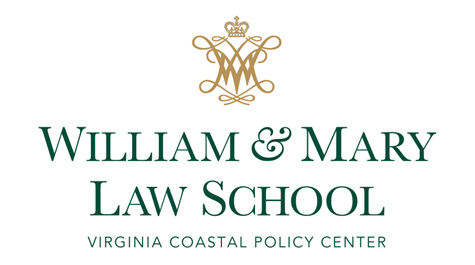Virginia Coastal Policy Center Takes to the Internet for Fall Webinar Series
The Virginia Coastal Policy Center (VCPC) at William & Mary Law School is holding a series of three monthly webinars this fall in lieu of its in-person annual conference.
For its September 16 webinar, “The Challenge of Financing Resiliency,” VCPC partnered with the Riley Center for Livable Communities at the College of Charleston. Experts convened via Zoom to discuss the challenges local governments face in trying to finance resilience projects, and potential sources of funding for such projects, including FEMA’s new Building Resilient Infrastructure and Communities (BRIC) program.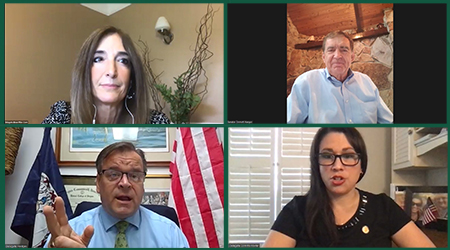
VCPC’s October 21 webinar, “Resiliency in Virginia: Outlook 2021,” featured Virginia elected and appointed officials, including Governor Ralph Northam, Speaker of the House of Delegates Eileen Filler–Corn, and a panel of legislators including Senator Emmett Hanger, Delegate Kelly Convirs-Fowler and Delegate Keith Hodges, to provide their outlook for resilience measures in the Commonwealth in 2021.
 In addition, Admiral Ann Phillips, Special Assistant to the Governor for Coastal Adaptation and Protection, discussed the development of Virginia’s first Coastal Resilience Master Plan framework. Secretary of Natural Resources Matt Strickler was also on hand to provide an update on Virginia’s participation in the Regional Greenhouse Gas Initiative (RGGI) and the implementation of Executive Order 24, which requires state buildings to be built to standards that make them more resilient to sea level rise and coastal hazards.
In addition, Admiral Ann Phillips, Special Assistant to the Governor for Coastal Adaptation and Protection, discussed the development of Virginia’s first Coastal Resilience Master Plan framework. Secretary of Natural Resources Matt Strickler was also on hand to provide an update on Virginia’s participation in the Regional Greenhouse Gas Initiative (RGGI) and the implementation of Executive Order 24, which requires state buildings to be built to standards that make them more resilient to sea level rise and coastal hazards.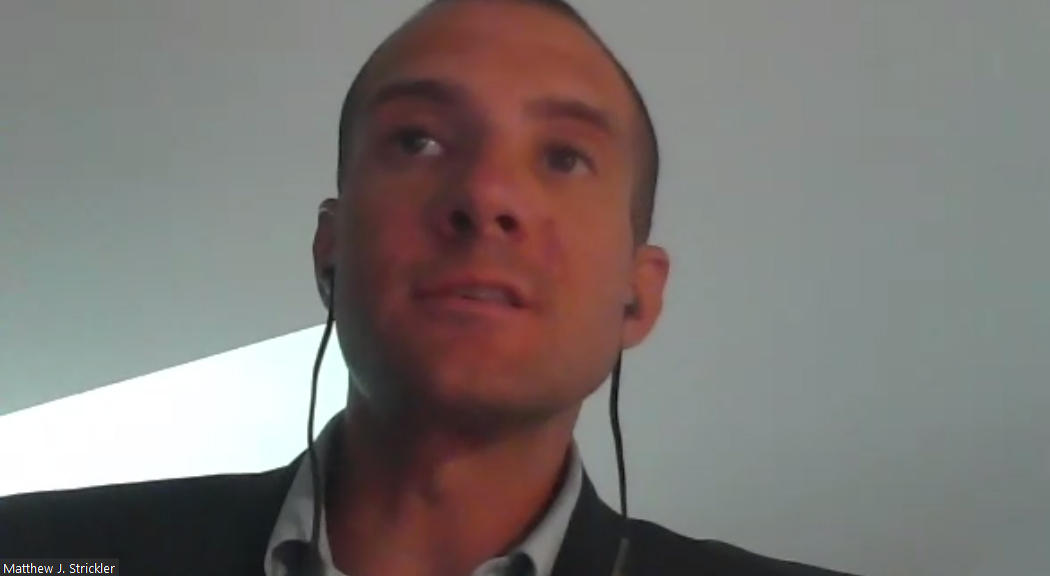
During his remarks, Governor Northam said he would soon be making a historic announcement regarding the Commonwealth’s progress toward a coastal resilience master plan, which he released the following day. He also praised the teamwork of multiple partners in tackling the problems of rising waters.
“We are fortunate that the Coastal Policy Center, along with many local governments, academic institutions and dedicated individuals, is focused on addressing these threats to public safety and economic prosperity,” Northam said. “But they cannot do it alone. With so much at risk we must take strong actions now. Our administration has and will continue to do just that. Sea level rise, natural hazards, and climate change represent an existential threat that will only be solved by facing our challenges head on. So with your help we will have a s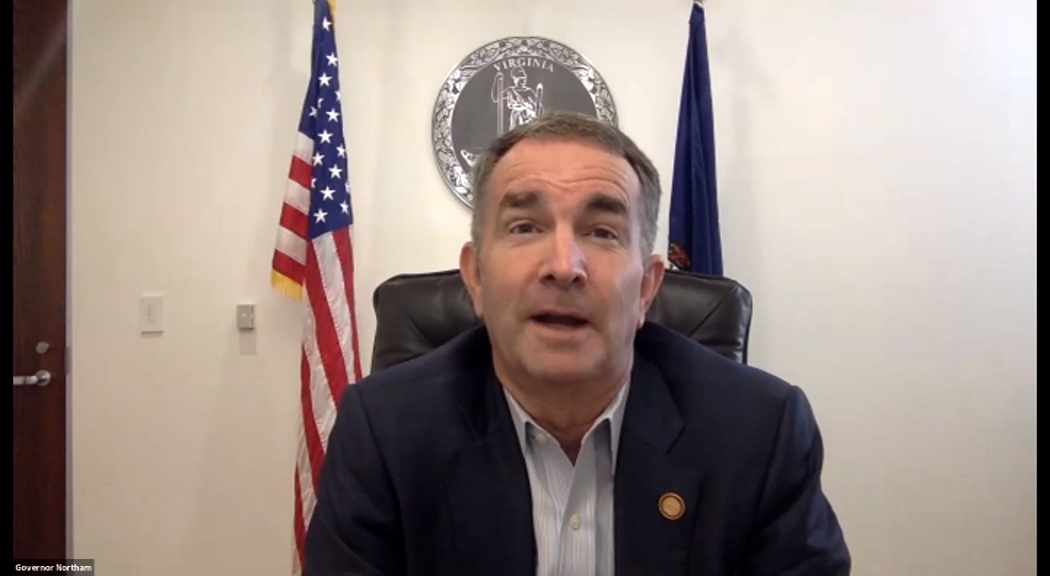 afe and resilient Commonwealth.”
afe and resilient Commonwealth.”
To facilitate coordination among all parties, and develop recommendations for specific, place-based coastal adaptation and protection strategies, Governor Northam will create a Virginia Coastal Resilience Master Plan Technical Advisory Committee (TAC). To facilitate coordination among all parties, and develop recommendations for specific, place-based coastal adaptation and protection strategies, Governor Northam will create a Virginia Coastal Resilience Master Plan Technical Advisory Committee (TAC). The TAC will assist in the development of the specifics of the Master Plan, including a more robust and refined funding and financing strategy.
Additionally, the TAC will track scientific developments, review proposed local and regional actions, and recommend additional risk assessment and scientific and engineering studies necessary to inform decision making.
Professor Elizabeth Andrews, Director of the VCPC, will be appointed to the TAC at a future date.
As host of the webinar, Professor Andrews thanked Governor Northam, Speaker Filler-Corn and the panel of distinguished legislators for sharing their insights about the resilience challenges Virginia is facing in 2021.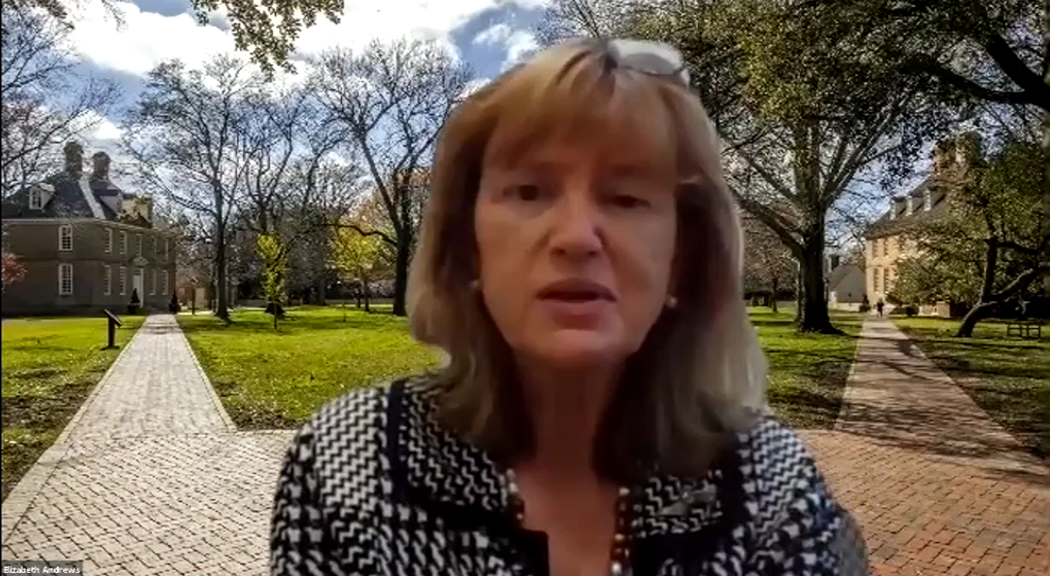
“With a terrible pandemic consuming our resources and attention, we need to find a way to still address sea level rise and the other increasing climate change impacts that we are experiencing,” Andrews said. “The significant points that were raised, and the ideas for potential legislation that were shared, focused attention on this existential threat and laid the groundwork for the next legislative session. I encourage anyone who missed the important discussion to listen to the recording on our website.”
VCPC’s November 18 webinar, “Liability in the Face of a Changing Climate,” will be cohosted by the Environmental Law Section of the Virginia State Bar. The event will focus on the potential liabilities state and local governments and the private sector design community face under a changing climate.
Recordings of all three webinars are being posted on VCPC’s website.
About William & Mary Law School
Legal education in a university setting began at William & Mary in 1779. Now in its third century, America's first law school continues its historic mission of educating citizen lawyers who are prepared both to lead and to serve.
